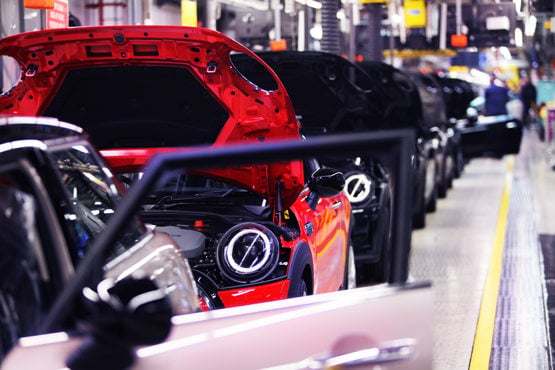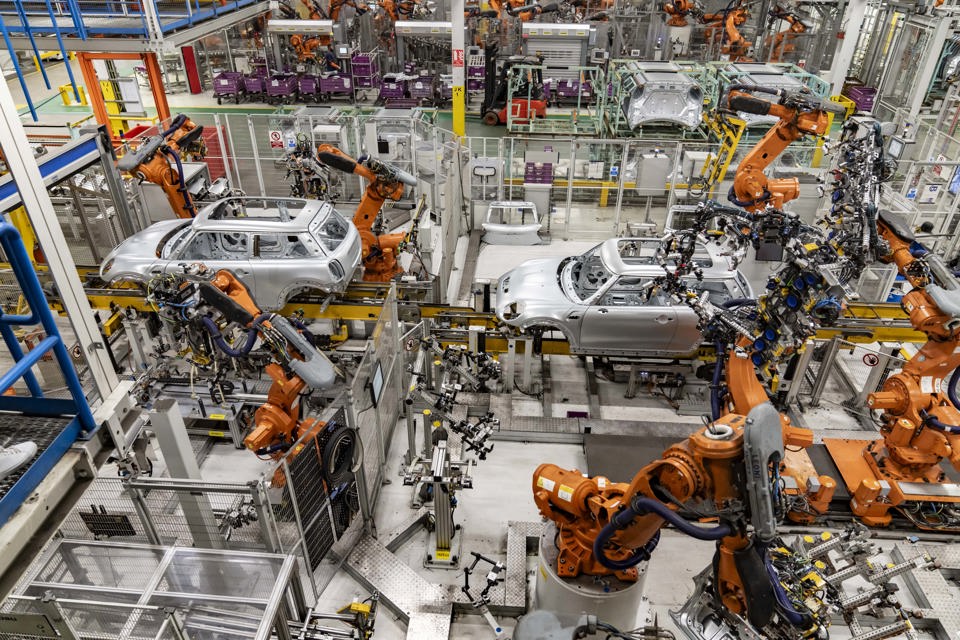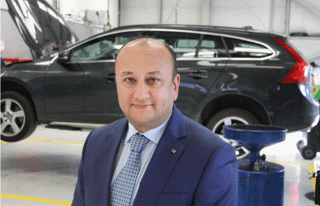President of the European Commission Ursula von der Leyen is preparing retaliatory measures following the introduction of US tariffs on vehicle imports.
US President Donald Trump announced a 25% tariff on car imports - 10% for British-made cars on April 1, referring to the event as "Liberation Day".
Classic cars over 25 years old are exempt from the tariffs.
While President Von der Leyen said the EC is ready to negotiate with the US to remove barriers to trade, she said: “At the same time, we are prepared to respond.
“We are already finalising a first package of countermeasures in response to tariffs on steel.
“And we are now preparing for further countermeasures, to protect our interests and our businesses if negotiations fail.”
UK business secretary Jonathan Reynolds is hoping an agreement can be reached with the US not just for a reduction in tariffs, but for their complete removal.
The Guardian is reporting this morning that British and US negotiators are "very close to finalising a deal", but it is yet to be signed off by President Trump.
Yet another challenge to a sector facing multiple headwinds
The Society of Motor Manufacturers and Traders (SMMT) said the tariffs cannot be absorbed by car brands and production volumes will have to be adjusted.
Mike Hawes, SMMT chief executive, said: “The imposition of a 10% tariff on all UK products exported to the US, while less than other major economies, is another deeply disappointing and potentially damaging measure.
“Our cars were already set to attract a punitive 25% tariff overnight and other automotive products are now set to be impacted immediately.
“While we hope a deal between the UK and US can still be negotiated, this is yet another challenge to a sector already facing multiple headwinds.”
Hawes explained that as the tariffs cannot be absorbed by original equipment manufacturers (OEMs) they will be passed on to hit US consumers.
He said: “Trade discussions must continue at pace, therefore, and we urge all parties to continue to negotiate and deliver solutions which support jobs, consumer demand and economic growth across both sides of the Atlantic.”
Sue Robinson, National Franchised Dealers Association chief executive, said the tariffs pose a “significant risk to the sector and the global economy”.
She said: “The cumulative effects of these tariffs will be profound, impacting our dealer members who have already shown remarkable resilience in the face of economic challenges, as well as manufacturers and the broader automotive industry.
“I urge the UK government to take swift and decisive action to safeguard jobs and protect our industry during these unprecedented times.”

Several strategies open to UK automotive companies
Dom Tribe, automotive sector leader at PwC UK, said UK automotive companies can adopt several different strategies to counter the effects of US tariffs.
This could include the localisation of assembly or manufacturing operations in North America to avoid tariffs, while maintaining market access, although this takes time and requires “significant capital”.
Additionally, they can consider diversifying or repositioning their supply chains to areas/regions that are less affected by any imposed tariffs, with vehicle production and key components being manufactured across Europe or multiple countries for example, to hedge against tariff and trade agreement disruptions.
Tribe said: “Companies could explore ways in which they could create greater product differentiation, such as more sustainable, luxurious or technologically advanced products that bring added value which consumers are willing to pay a premium for."
UK buyers could feel knock-on effects sooner than expected
Aidan Rushby, founder and CEO of Carmoola, said that while Trump’s new tariffs might seem like a distant diplomatic issue, UK car buyers could feel the knock-on effects sooner than expected.
He said: "If British manufacturers struggle to sell into the US, we could see more cars redirected to the domestic market, which may mean better deals for UK consumers, especially when it comes to nearly-new and used cars.
"At the same time, an economic wobble caused by global trade tensions could put pressure on household finances.
"When that happens, people naturally tighten their belts, which may push used car prices even lower as demand softens.
"That’s good news if you’re buying, but for current car owners, it could mean your vehicle loses value faster."
Philipp Sayler von Amende, chief commercial officer at Carwow added that the full impact to UK car dealers and car buyers remains uncertain.
The tariffs could drive a renewed focus on European production, marketing and sales efforts - increasing competition and potentially lowering prices in the region.
He said: "What’s clear is that these tariffs will have far-reaching consequences, from factory workers to retailers and car buyers across the EU.
“Manufacturers need the confidence to invest, car dealers need access to stock, and consumers deserve choice at a range of prices. The Government must ensure that the UK remains a competitive and attractive market for automotive innovation and growth."



















Login to comment
Comments
No comments have been made yet.